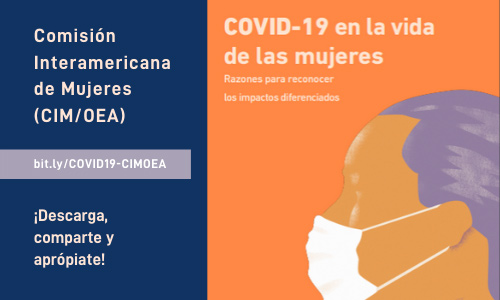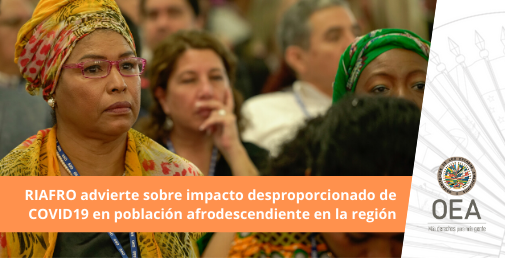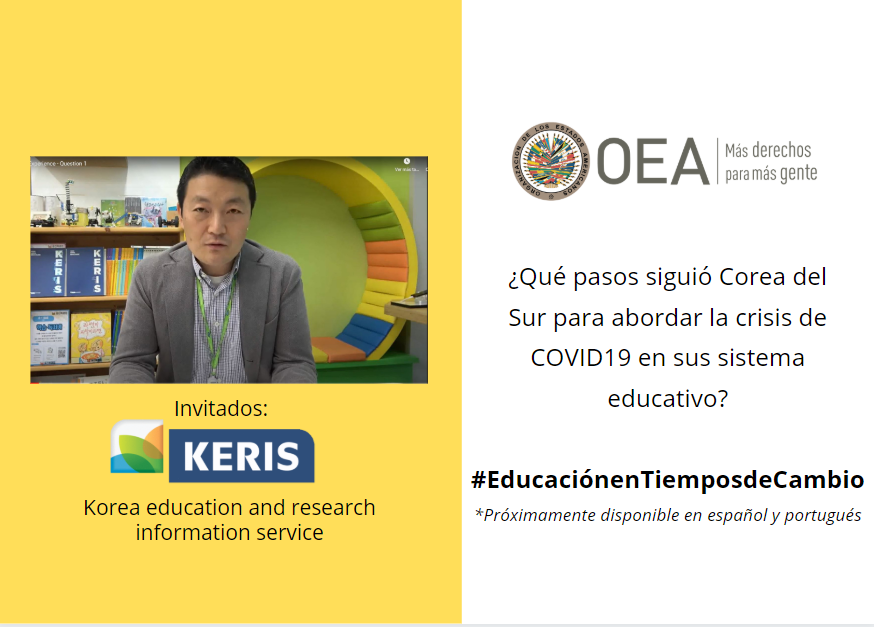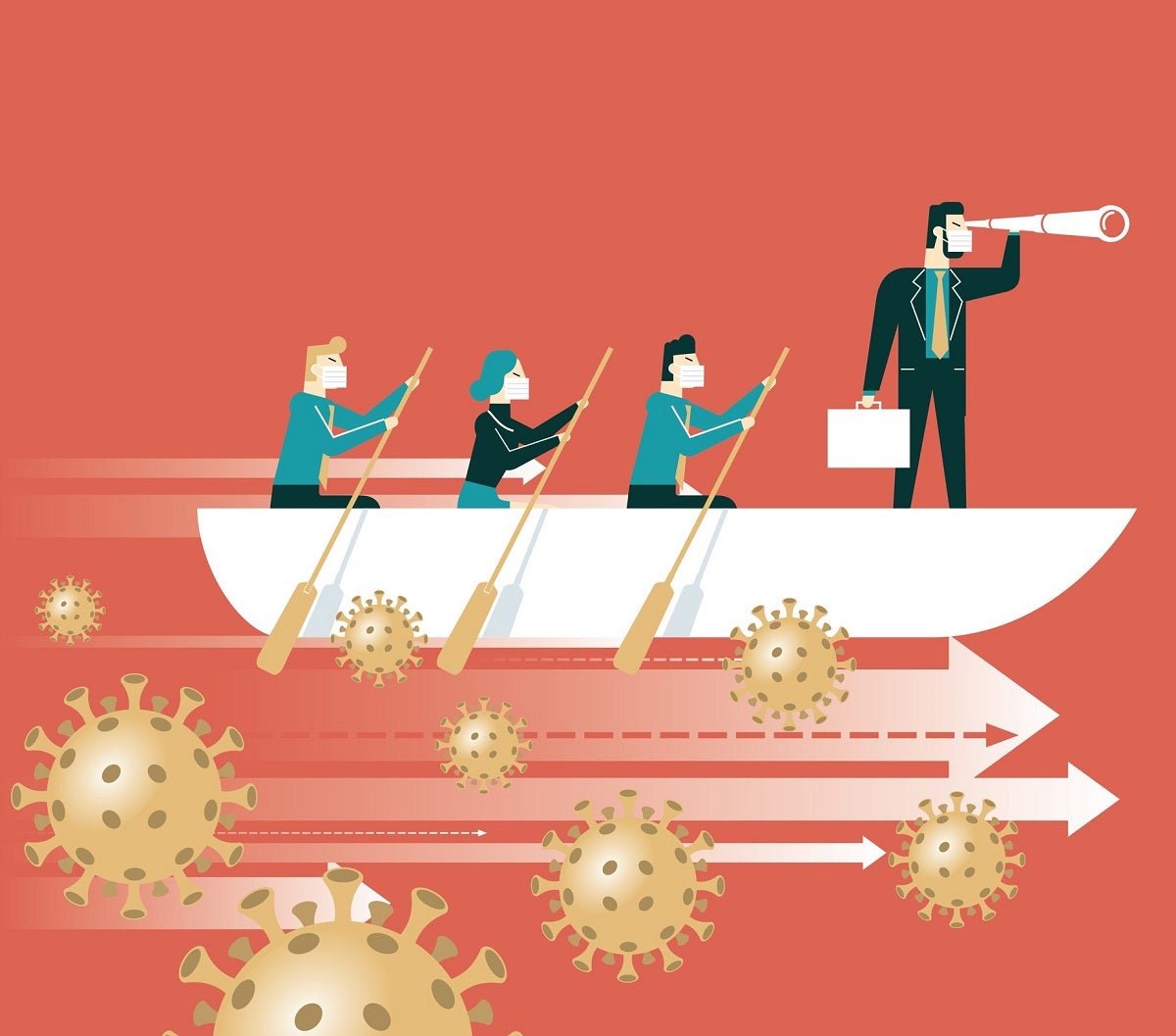PAHO Director calls for continued immunization to avoid risk of other outbreaks during COVID-19 pandemic. The Director of the Pan American Health Organization (PAHO), Carissa F. Etienne, today urged for vaccination programs to continue during the COVID-19 pandemic.
In a press briefing updating the situation, Dr Etienne said, “until a vaccine for COVID19 is available, immunizations can and must be delivered by the health services alongside the response” to the pandemic. If countries fail to do this, “the impact on our health systems would take months or even years to reverse,” she added.
A priority for countries, she said, is to “vaccinate to protect health workers, the elderly and vulnerable populations from other respiratory infections, such as influenza and pneumococcus, which can lead to more hospitalizations and may be harder to diagnose in the context of COVID-19.”...Read more
Policies and Strategies
CIM of the OAS Launches Document on Differential Impact of the COVID-19 Crisis on Women. The Organization of American States (OAS), through the Inter-American Commission of Women (CIM), has released the document “COVID-19 in Women´s Lives: Reasons to Recognize Differential Impacts.” The document, which responds to the needs that the CIM identified during meetings with the Ministers and high-level authorities on women and gender, experts from the Follow-up Mechanism to the Belém do Pará Convention (MESECVI) and women's organizations, offers a broad overview of the differentiated impacts of the crisis on women, paying special attention to the most vulnerable groups. In addition, it proposes guidelines for the design of actions and public policies based on the principles of equality and non-discrimination and the need to implement affirmative action measures... Read more

Inter-American Network on Afro-descendant Population Policies Warns of Disproportionate Impact of the Pandemic in these Communities. The Inter-American Network of High Authorities on Policies for Afro-descendant Populations (RIAFRO, for its initials in Spanish) warned of the disproportionate impact of the SARS-CoV-2 pandemic, the virus that generates the COVID-19 disease, on the Afro-descendant population in the region. The Network highlighted that structural racism, inequality and the historical discrimination of which the Afro-descendant population has been, and continues to be, a victim, generates a situation of even greater vulnerability to the effects of the pandemic in relation to the general population... Read more

Coronavirus in the Americas, live: latest news from Covid-19. The Government of Mexico predicts that the peak of the coronavirus crisis will begin in five days. Peru exceeds 1,000 deaths from the pandemic. The Bolivian Senate approves calling presidential elections before August 2... Read more

Tools
Training for the unemployed: Coursera grants access to online learning at no cost. As a response to the Covid-19 crisis, on April 24th, COURSERA, recognized as one of the major online learning platforms in the world, launched a program to grant the unemployed free access to its courses, through an alliance with governments. Now, government agencies serving unemployed populations can access more than 3,800 courses and 400 specializations, in order to support training and reskilling, and re-enter the workforce. The OAS is currently exploring a partnership with COURSERA.... Read more

The South Korean Experience: How is the country facing the challenges or COVID19? Mr. Min Kim, Chief, Global Cooperation Section KERIS (Korea Education and Research Information Service)... Read more

The fast and the curious. As a pandemic emerges, UNDP’s Accelerator Labs mark a year of asking the right questions. Whether it’s climate change, plummeting biodiversity rates, or unchecked consumption and waste, we already face unprecedented planetary challenges.
Now, the coronavirus COVID-19 has added an extra, deadly layer of complexity to the paths we must forge.
And we have a very limited time left in which to make the big changes that will create a sustainable and just future.
Now more than ever, there are no one-size-fits-all answers; new ways of thinking are needed... Read more

Opinion and analysis
Ideas for better taxation in the post-crisis of COVID-19. The surprising global economic crisis caused by the coronavirus (COVID-19) will have notable economic consequences. Against this background, our countries are adopting measures to mitigate the situation and that its consequences do not last over time. Some of them will mean an increase in health spending and transfers to vulnerable sectors, which, together with the foreseeable fall in income, will generate even greater public deficits. In the short term, these deficits will be financed with an expansion of the debt, but after the reactivation phase, in many cases the time for tax policy will come.
In our opinion, at that time, the measures adopted in this regard should be guided by four guidelines... Read more
In our opinion, at that time, the measures adopted in this regard should be guided by four guidelines... Read more

Connectivity is a public good: Let’s act accordingly, now and tomorrow. One and a half billion. That’s the number of children who need online schooling due to the coronavirus pandemic (COVID-19). While some parents worry about the quality of education their children will receive in a virtual setting, online education is still not even a remote possibility for millions of unconnected kids across the world. Amid social distancing, connectivity is what keeps us informed and employed; it maintains our mental and even physical well-being. For those without internet access, the economic and social impact of the pandemic will be even more colossal.
In the battle against COVID-19, digital technologies are front and center. Countries that do not have the infrastructure for widespread broadband are bracing for the worst... Read more

Recommended Events & Courses
The Effects of COVID-19 on Indigenous Communities and Tourism in the U.S. and Canada. While many indigenous communities have relied on tourism as a source of income, an incentive to preserve their natural and cultural heritage and an opportunity to share their stories with visitors, the recent COVID-19 pandemic has brought tourism to a halt across North America and across the world.
How have indigenous communities been impacted by the spread of the virus? How are tribes protecting their people from the impact of the virus, both in terms of the health of their people as well as the impact on and livelihoods? The Organization of American States and the George Washington University International Institute of Tourism Studies in collaboration with the Bureau of Indian Affairs invite you to attend a conversational webinar on the particular challenges that COVID-19 is bringing to Indigenous communities and tourism... Register now

Digital Government. La revolución digital ya está presente en muchos aspectos de nuestra vida, ¿y en nuestros gobiernos?
Para seguir el ritmo de ciudadanos hiperconectados y del comercio que ahora es cada vez más digital, los gobiernos no se pueden quedar atrás. Read more

No comments:
Post a Comment